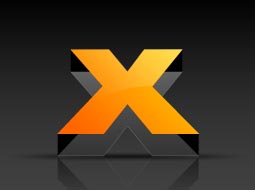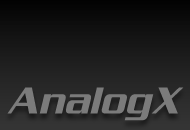CookieWall
CookieWall
CookieWall
CookieWall
CookieWall
version 1.02
version 1.02
version 1.02
version 1.02
version 1.02
Documentation
Most people who are on the net these days is probably familiar with what a cookie is - it's basically a small piece of information related to you that a website stores on your computer. This in and of itself is nothing bad, the vast majority of the websites out there use this simply to track when the last time you came was (so they can show you what's new), or your login information so you don't need to login again and again - great timesavers! Of course, I said most site, but not all... There are many companies that try to cross- reference sites that you go to, to help build customer profiles so they can target advertising at you, provide clients with buying patterns, and a whole lot more. Now, while in concept I don't mind that they do this - heck, I would welcome ad's that actually were something I am interested in, but right now it is hardly like that, and that's where AnalogX CookieWall comes in.
CookieWall is very simple to use - just run the program, which resides on your system tray (on the lower right of your screen), and it will track all the cookies that come into your system. Then, periodically just go into the 'Add/Delete' menu, browse through the new cookies in your system, and select which ones should go as well as which ones can stay - it's that simple! Once you've tagged a particular cookie as unwelcomed on your system, CookieWall takes care of the rest and deletes it quickly and quietly. If you would rather be notified each time a new cookie intrudes on your system, you can also enable a pop up notification window which contains the name of the offending site, the cookie name and it's contents as well; from here you can choose to delete it, keep it, or add it to the new list for categorization later.
The 'Add/Delete' dialog is used to specify which cookies should stay, and which should go... New cookies are listed in the middle column; these are cookies that you have not yet said if they should be automatically deleted or not. You may select cookies from the 'New' column by clicking on them - once they are selected, you can move them into the delete or keep columns by clicking on the '<<<' or '>>>' respectively.
Several options are available via the Configuration menu which can greatly improve your experience with CookieWall as well. The 'AutoStart' option is used if you would like CookieWall to launch automatically when Windows starts up. 'New cookie action' specifies what happens when a new cookie is detected; by default the action is 'None', which means it's simply listed in the 'New' column in the 'Add/Delete' dialog. You can alternatively set this to 'Delete' which means CookieWall will delete any new cookies when they first appear, though it will still list them in the 'New' column so you can set it to allow them at a later date. Finally, you can set it to 'Prompt' which causes the program to ask you what to do each time a new cookie is detected (great for power users who like to see everything that's going on). Finally, you can set how often new cookies are scanned for - in most cases the default (once per minute) is fine, but some people might prefer faster notification.
You also have the ability to browse through all the active cookies currently on your system, if you've ever wondered what exactly they contain. Simply select 'Browse' from either the right-click menu, or from the Add/Delete dialog and you'll be presented with all the information you. If you'd like more info about what cookies are, can do, contain, and are created, I would recommend checking out the following site:
http://www.cookiecentral.com/faq/index.shtml
CookieWall currently only works with Microsoft Internet Explorer, although Netscape support is in the works and should be available shortly. It should also work fine with NeoPlanet or any other IE-derived browser.
Last updated on Tuesday, March 9, 2021 12:24:46 PM PST. AnalogX trade is a registered trademark of AnalogX, LLC. All other trademarks are the sole property of their respective owners. All contents copyright ©1998-2009, AnalogX. All rights reserved.

